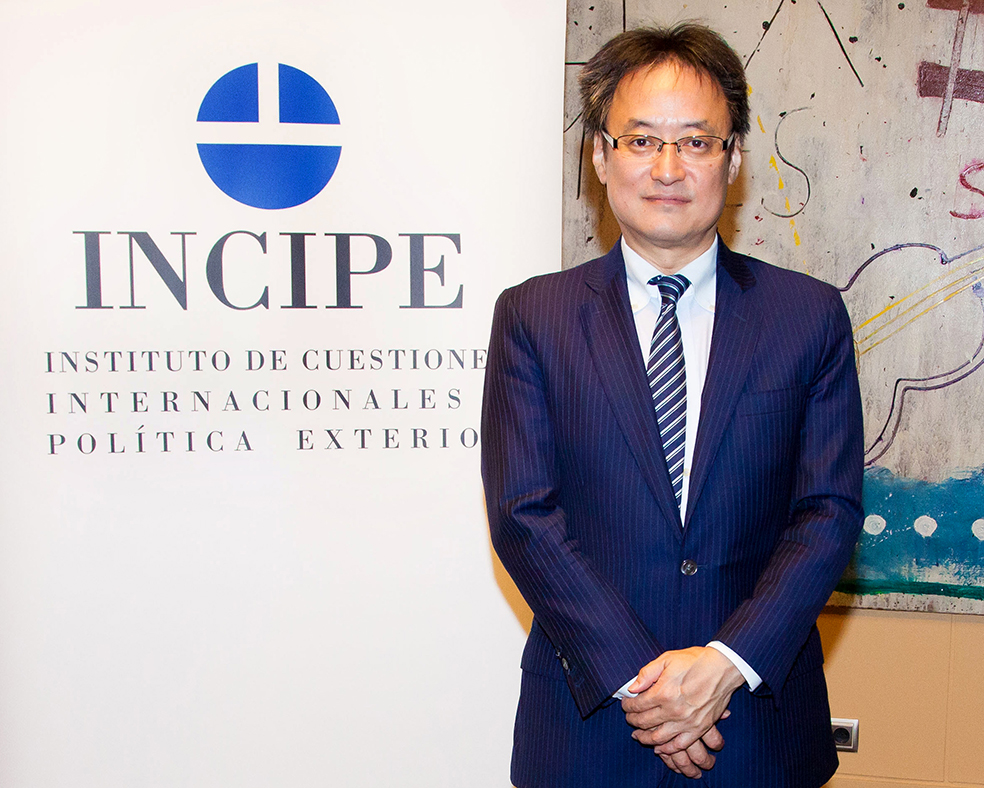Whither the EU-US-Asia Triangle? The politics of norm in the age of developed countries’ risk

On October 4th, 2017, INCIPE hosted a Working Breakfast titled Whither the EU-US-Asia Triangle? The politics of norm in the age of developed countries’ risk. Ken Endo, professor of International Politics at Hokkaido University in Sapporo, Japan, led the group in a presentation on current diplomatic relations between the U.S., the E.U., and Asia. In this meeting, the idea of the relationship between globalization and populism was applied to developing situations in the Asia-Pacific, specifically regarding China and North Korea.
To begin, the topic of how globalization brings nationalism to a given country and provides a vehicle for extreme populism to arrive. This occurs because, after incorporating a population in the process of global interactions, there are always people that feel marginalized. These people typically consist of those from the middle class that cannot benefit from their country’s participation in world economics and politics. They—as well as the people that pertain to the lower classes—can feel a bit forgotten by their government, which they see as distracted by foreign affairs instead of bettering the state of things in their own country.
Then, the discussion also noted that, in light of these strong authoritarian powers, it would be beneficial to continue developing cooperation in between entities like the European Union and countries like Japan—which have just introduced new steps to more integrated business here—and “harmonize up,” in order to achieve progress regarding matters that require multilateral solutions (such as the topic of the environment, etc.). Additionally, in order to avoid harmful populism wherever hyper-globalization has arrived, it is necessary to involve the people that feel marginalized in a given country more (for example, a government should take steps like increasing minimum wage). This is the only way to continue globalizing and keep democracy intact.
To close the Breakfast, the crisis of North Korea and the roles of China, the United States, and Russia were contemplated as well as the implications of China’s “One Belt, One Road” initiative.

